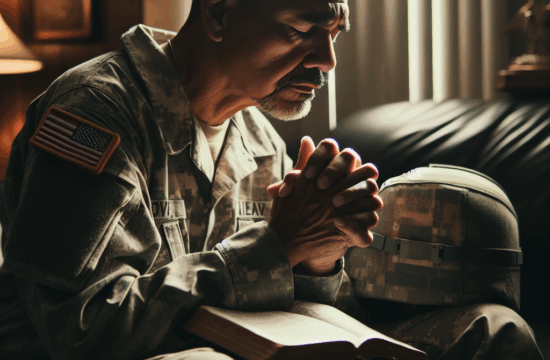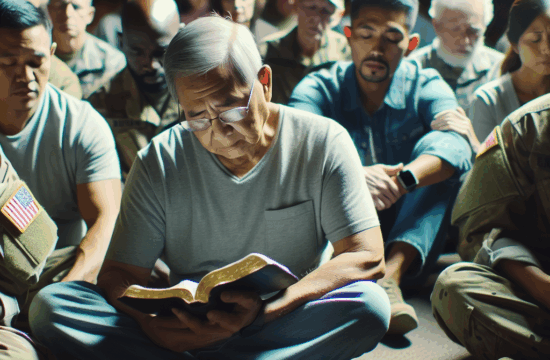==> Thank you for reading this post! Click Here If you are looking for support and Victory over PTSD.
Emotional Struggles
Facing Inner Demons
It’s wild how when you’re serving, you think you can push through anything. You train for combat, you face the enemy head-on, but what about the struggles that don’t have a uniform? The emotional battles that often go unnoticed are some of the toughest to face.
Many veterans feel a mix of sadness, anger, and anxiety, which can sometimes feel overwhelming. I’ve been there myself, grappling with emotions I couldn’t quite name. It took me a while to realize that it’s completely okay to feel lost and to seek help.
Talking to a fellow vet or a mental health professional can start to ease this internal chaos. Opening up about our experiences doesn’t make us weak; it makes us human, and it’s the first step towards healing.
Guilt and Regret
One of the heaviest weights many of us carry is guilt—especially survivor’s guilt. You come home, and it hits you hard: why did I make it back when others didn’t? These thoughts can eat away at you over time if you let them.
When I first got back, I often replayed my memories, wondering if I could have acted differently. I had to remind myself that I did my best under pressure. Sometimes just acknowledging these feelings helps lighten the load.
Finding a support group where I could share those feelings was pivotal. It’s liberating to voice out what’s bottled up inside, and to realize I’m not alone in feeling this way.
Anxiety and PTSD
Anxiety can be an uninvited friend after service. The smallest things can trigger memories of combat, leaving many veterans in a heightened state of alert. It’s tough to find peace when your mind is racing.
I remember times I was jumpy over loud noises or felt on edge in crowded places. Post-traumatic stress disorder (PTSD) doesn’t always show in obvious ways, and sometimes it just creeps up when you least expect it.
Therapy has been a lifesaver for many of us. Techniques like mindfulness and grounding exercises have helped me regain control. It’s about learning to manage the chaos rather than letting it run our lives.
Physical Health
Impact of Combat on the Body
Let’s be real: war takes a toll on our bodies. We’re trained to be tough, but the physical ramifications of combat can be long-lasting. Injuries, chronic pain, and even illnesses can surface much later than you’d expect.
During my service, I ignored a lot of physical ailments; I thought the pain was a badge of honor. Looking back, I wished I had taken better care of myself. Listening to my body is something I’ve had to learn the hard way.
Regular check-ups can make a huge difference. It’s critical to prioritize physical health just like we prioritize mental health, and I encourage my fellow veterans to do the same.
Nutrition and Lifestyle
How many times have I relied on fast food or skipped meals? It’s all too easy to fall into unhealthy eating patterns, especially when you’re adjusting back to civilian life. However, maintaining good nutrition is essential for both physical and mental health.
I’ve started cooking healthier meals and paying attention to what I eat. It’s wild how much better I feel when I fuel my body properly. The blues can often fade with a balanced diet and hydration.
Creating a routine around meals and exercise makes a massive difference. Even a simple walk can boost my mood and help clear the mental fog.
Exercise and Recovery
Exercise has become my therapy. There’s something about pushing myself physically that alleviates the mental strain. Whether it’s hitting the gym, jogging, or even yoga, moving my body helps clear my mind.
When I first got into a workout routine, I was amazed at how much of a release it was. It’s more than just building muscle; it’s a way to regain a sense of control in life.
Consider finding an exercise buddy, ideally someone who understands where you’re coming from. It’s always easier to stick with it when someone else is in it with you.
Social Reintegration
Adjusting to Civilian Life
You’d think transitioning back to civilian life would be smooth sailing. But the reality is that it can feel alien and awkward. The everyday norms that everyone else follows are not always intuitive to us.
When I got home, I felt like I had missed a ton of social cues. It took time to reacquaint myself with how to engage in small talk, or even just to feel comfortable in social settings.
Joining community groups or veteran organizations provided the support I needed, helping me bridge that gap between military and civilian life. Connecting with others who have walked the same path was really valuable.
Finding a Support Network
Creating a circle of support is paramount. Friends and family can only do so much if they haven’t been through similar experiences. It’s important to reach out and connect with those who understand.
Community centers or veteran organizations offer resources and camaraderie. I’ve found friends who understand my journey, and it’s comforting to share experiences and challenge each other’s growth.
Sometimes, just having someone to talk to—someone who gets it—can lighten the emotional load. It turns out we are stronger together than we are apart.
Building New Relationships
I can’t stress enough how vital it is to build new relationships after returning home. Friendships that I had before my deployment had changed; some were lost along the way. So, making new friends who relate to my experiences has been incredibly fulfilling.
Get Support and Help with Recovery! Visit us for more Information and Support
It’s all about stepping out of your comfort zone. Whether that’s joining a local book club, a sports league, or just hanging out in community spaces, you can find people to connect with.
Many of us are on a quest for connection, so put yourself out there. It may feel weird at first, but each step towards building a social life is a step toward healing.
Finding Purpose
Re-discovering Identity
Returning home, many veterans struggle with their identity. Who are you after serving, and what does life look like now? I think this can be one of the biggest challenges we face.
Finding passions beyond the uniform is crucial to regaining a sense of self. Whether it’s art, coaching, or volunteering, engaging in meaningful activities can create a renewed sense of purpose.
Pursuing hobbies and interests offers a chance to explore who you are now, rather than who you were. It’s liberating to express yourself and find joy beyond military life.
Engaging in New Ventures
Some of the best parts of transitioning back have been diving into new activities. Learning something new keeps the mind sharp and provides fresh perspectives. From blogging to woodworking, I’ve tried it all!
Finding a new mission—whether personal or professional—can shift your focus and help you carve out a fulfilling path. There’s a world out there beyond the uniform, and it’s exciting to explore it.
I encourage everyone to look for opportunities to learn and experience things outside of their comfort zones; it might just re-ignite a passion you never knew you had.
Giving Back to the Community
Another great way to find purpose is through service. Helping others is not just uplifting for those receiving help; it’s also a tremendous source of fulfillment for us as givers.
Whether participating in mentorship programs or community service events, being involved in acts of charity can reinforce your purpose and re-establish your place in the community.
Giving back also connects you with others who share the same mission, creating new friendships and building networks that help you and your community thrive together.
Seeking Professional Help
The Importance of Counseling
When life gets tough, it’s essential to reach for support—counseling has been that support for many veterans, including me. There’s no shame in seeking out professional help. In fact, it’s a brave step toward healing.
A good therapist can offer a safe space to explore thoughts and feelings that are difficult to face on your own. Sharing personal experiences with someone who understands can create openness and acceptance.
Therapy isn’t a one-size-fits-all experience. It’s about finding what works best for you, whether it’s cognitive-behavioral therapy, group sessions, or alternative therapies.
Utilizing VA Resources
The VA offers numerous resources for veterans looking for help. From counseling to service programs, knowing what you’re entitled to can make all the difference in accessing support.
When I reached out, I discovered so many services I didn’t even know existed. Programs that target everything from mental health to educational benefits were right at my fingertips.
Never hesitate to explore these resources. They are designed for us, and tapping into them could lead to substantial improvements in quality of life.
Building a Holistic Support System
Healing doesn’t happen in isolation; building a holistic support system can provide comprehensive help. This means combining professional care with peer support, community resources, and family involvement.
Encouraging family to be part of your journey can help bridge gaps and create stronger bonds. It also aids in making them aware of what you’re going through, allowing for deeper understanding.
Don’t forget to lean on your friends and community. A sturdy support system will be there no matter the ups and downs, making the journey much more manageable.
Frequently Asked Questions
1. What are some common emotional struggles faced by veterans?
Many veterans deal with feelings of sadness, anger, anxiety, and guilt, particularly survivor’s guilt. Understanding that these emotions are common can help in seeking support.
2. How can physical health affect mental health in veterans?
Poor physical health can exacerbate feelings of anxiety and depression. Regular check-ups and exercise can improve both physical and mental well-being, leading to a better quality of life.
3. What role does social reintegration play in a veteran’s recovery?
Adjusting to civilian life is crucial and can affect a veteran’s mental health. Building a support network and engaging in community activities are important steps in this process.
4. Why is it important for veterans to seek professional help?
Professional help provides a safe space to explore tough emotions and thoughts. It’s beneficial to talk to someone who understands the complexities of military life and can guide you through the healing process.
5. How can veterans find purpose after service?
Finding purpose can come from re-discovering personal interests, engaging in new activities, and contributing positively to one’s community. This can lead to a fulfilling life beyond military service.













